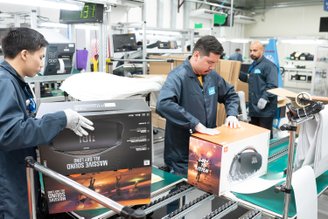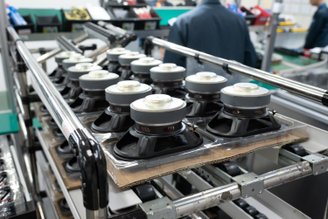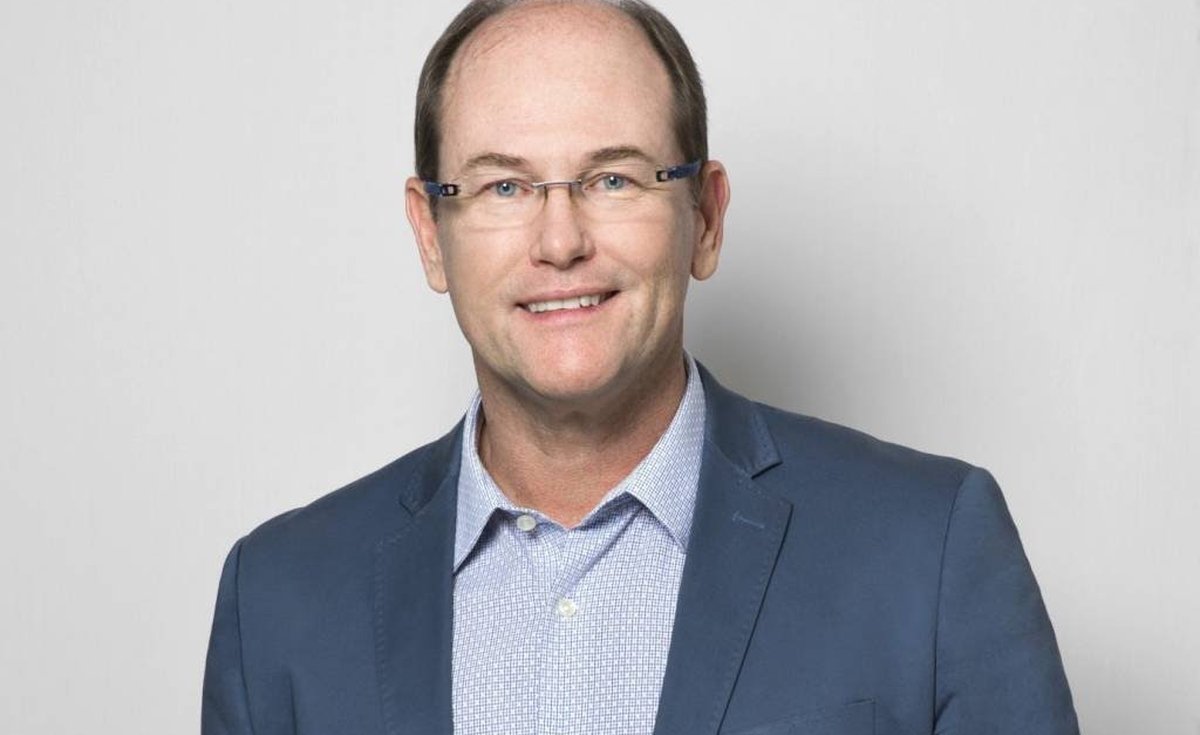JBL is one of the most popular names in Brazil when it comes to audio products. According to a research conducted by the Growth from Knowledge (GFK) agency, the company has approximately 83% market share in Speakers. One of the contributing factors to this is that the products are produced in the Harman factory, which is entirely responsible for the brand. It is located in Manaus.
Rodrigo Kniest, Harman’s Senior Vice President, described this process as “natural” and emphasized in an interview with TecMundo that adapting the products for Brazilian consumers was an important issue. The idea, which he calls tropicalization, involves having the company entirely in Brazil and adapting products sold abroad, as well as developing others focused entirely on the Brazilian people.
The first speaker Harman produced in Brazil was the DJ Xpert. The product, which was considered both a semi-professional product and aimed at the end consumer, was so successful that the Brazilian people took it to other countries.
“This product began to appear in America, for example in Miami. People took it from Brazil to the USA and it started to gain traction,” commented Kniest. He even stated that it was even questioned whether the product was produced by JBL because it was not easily found abroad.
One of the main features that Rodrigo highlights is the power of the voice. The louder voice for sharing is important to the Brazilian market because of the public profile. However, in other regions such as Europe or Japan, this is a feature that does not fit well with the local culture. It is very important to identify different niches when developing a product.

One of the products produced entirely in Brazil is the Boombox. Since it is a very popular product in the country and has a high sales volume, it is easier to ensure production in the country’s territory. It is worth remembering that more complex factors such as documentation for project approval and factory investments also come into play for this.
Another important factor for the brand is both speakers and headphones. Devices serving all mobile device brands such as Samsung, Apple, Motorola and others offer the same features on all of them, giving the user more freedom and democratizing access to quality products.
“Our main motto was to provide access. I kept repeating: ‘Guys, we have to make JBL branded products accessible to the Brazilian consumer market,'” Kniest declared.
He also notes that it is complicated for a company to meet the specific needs and wants of each market. The product may be of high quality but may not be popular in a particular country due to factors such as prices or even resources. Discussions were then held about the needs of the Brazilian public to better understand how to facilitate Brazilian consumers’ access to JBL products.

Challenges of piracy
With its popularity came a problem: piracy. According to Harman’s research, there were around 43,041 counterfeit products in Brazil alone.
Although Kniest perceives the issue as a “natural” way, he says that since there are successful products on the market, this affects the brand because it is a copy, but the biggest loser is the consumer whose security may be compromised. for example if the item catches fire.
Another point that Rodrigo underlines is that piracy, in addition to affecting the reliability of the brand, also poses a challenge in terms of replenishing the resources contained in the products. “This is not our case, but most companies give up on pursuing innovation. You invest in an innovation for three, four, five years, you achieve a huge innovation that costs a lot, and six months later a product similar to this one emerges but does not actually benefit from the innovation. but high quality audio, immersive audio etc. He says it is like that. Then people get fooled by it and they may listen and say ‘okay, but this technology is not good’.”
The executive also touched upon the importance of the company cooperating with government agencies, not only in paying taxes, which he sees as a “social obligation and benefit”, but also in determining which products are and are not imported by the company through communication.
One of the ways the brand has found to combat piracy is to raise awareness in society. Kniest stated that the actions are mainly carried out on the website and contain information that will help the consumer determine whether a product is genuine.
****
*The journalist went to Manaus for an interview upon Harman’s invitation
Source: Tec Mundo
I am a passionate and hardworking journalist with an eye for detail. I specialize in the field of news reporting, and have been writing for Gadget Onus, a renowned online news site, since 2019. As the author of their Hot News section, I’m proud to be at the forefront of today’s headlines and current affairs.












